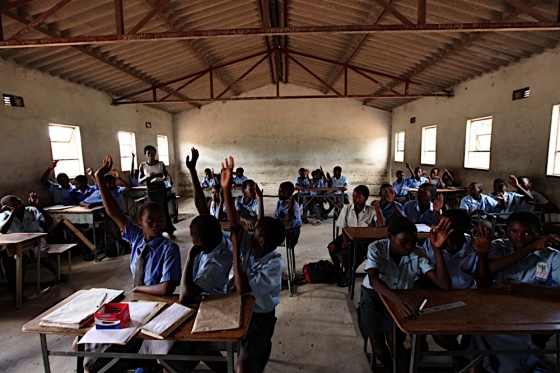Put children in school, not work

Child labour is a scourge that remains a problem in Zimbabwe, and statistics from the last child labour survey (2011) show that about 10 percent of children in the age group five to 14 are engaged in economic activities. Indeed, these children work because their parents are poor, or because they are orphaned and poor.
And children who are in economic child labour are less likely to be in school. Of the total children aged 5 to 14 years in economic child labour, about 15 percent were not in school.
While children may be pushed to economic child labour due to poverty, their deprivation from education perpetuates the vicious cycle of poverty.
Child labour is generally defined as work that deprives children of their childhood, their potential and their dignity, and that is harmful to physical and mental development.
While not all work done by children is defined as child labour, according to ILO conventions, child labour depends on the child’s age, the type and hours of work performed and the conditions under which it is performed and as such differences in measurement may emanate from the application of these provisions.
Zimbabwe has reason to be proud. Zimbabwean children have the constitutional right to be protected from “economic and sexual exploitation, and from child labour, and from . . . any form of abuse” — Article 81 (1) (e) of the new constitution. Now is the time for all Zimbabweans to seize this opportunity and make sure that these constitutional rights are upheld for the more than half a million children who are known to be working when they should be at school or studying or helping at home or playing with their friends.
We know that these working children are living in the poorest households and have to work to sustain their families. They are most likely to be orphaned, to be living with an elderly grandparent or with a caregiver who is chronically sick or disabled.
We know that these children drop out of school, or are so tired that even if they are in school they cannot concentrate on their studies.
We also know that much of the economic activity engaged in by girls is sexually exploitative whereby they are forced to engage in prostitution because there is not enough food on the table, or because they need to pay for healthcare.
Many parents think it’s good for children to have a job so that they can learn how to be responsible and transition to the working world of adulthood, or they believe that children can learn more important skills outside of school.
However, child labour can jeopardise the physical, mental or emotional well-being of a child, either because of its nature or because of the conditions in which it is carried out. Some forms of child labour, such as children toiling the fields or herding cattle, are so common that we no longer recognise how harmful they are.
There are also other groups of invisible children, those working in or on the periphery of the mining industries, child domestic workers, girls who, for religious or cultural reasons, are made to work around the home instead of going to school, children who are coerced to engage in illicit activities by unscrupulous adults, all of these children are being denied their basic rights as enshrined in both international law and now in the Constitution of Zimbabwe.
It is our duty to ensure that these children are “free from forced or compulsory labour”, says Article 55 of Zimbabwe’s new constitution.
In addition to good legislation, we need good enforcement of that legislation. More importantly, policy choices and accompanying investments that are certain to have an impact on addressing child labour are in the areas of education and social protection.
Education access and social protection programmes have a direct impact on likelihood of child labour, especially in poorer communities. These interventions have proven to be essential to mitigating the social and economic vulnerabilities that lead families to resort to child labour.
The benefits of ending child labour cannot be overstated. Children who grow up free from child labour have the opportunity to realise their rights to education, leisure and healthy development. The costs of inaction are equally clear!
Samson Muradzikwa is Unicef’s Chief of Social Policy.
For comments and contributions, e-mail: [email protected]







Comments